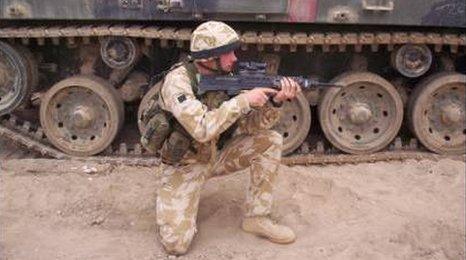More young veterans treated for PTSD than ever before
- Published
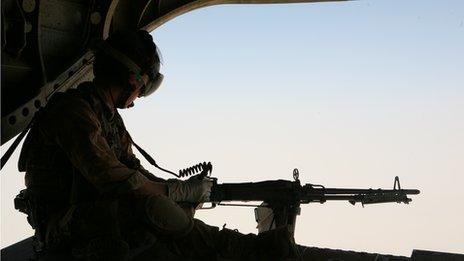
Leading military charities say they're treating more veterans under-30 for post-traumatic stress disorder (PTSD) than ever before.
The mental health problem is triggered by injury or severe psychological shock and anything from military combat to a traffic accident can cause it.
Symptoms include flashbacks, severe anxiety and depression.
Former Royal Air Force Regiment gunner Mark Stewart has been talking to Newsbeat.
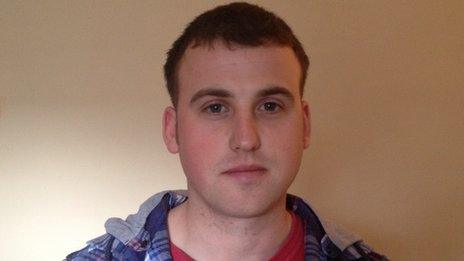
Mark Stewart from Northumberland served with the RAF
Mark's story
Mark was two weeks into his first tour of Afghanistan in 2009 when the vehicle he was driving hit an improvised explosive device (IED).
"It was like a firework going off in your face and I started to panic because I couldn't open the door," he explained.
The 25-year-old managed to escape by climbing over a colleague but was later told his section commander had died.
Mark says he didn't realise he had a problem until he was preparing for his next deployment.
"I just didn't want to put myself in that same situation again.
"I isolated myself from everyone, massive anxiety and that's when I started to have panic attacks," he said.
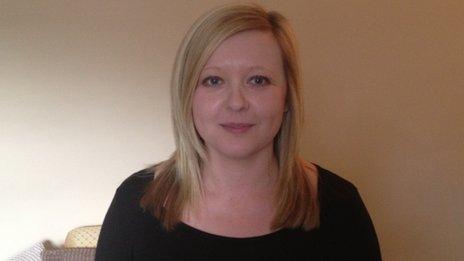
Mark's girlfriend Georgina Taylor helped him through his counselling
Suicidal thoughts
Mark started to confide in his girlfriend Georgina Taylor because he was too embarrassed to talk to anyone else.
"I tried to put his mind at rest but by the end of it he was hysterical," explained Georgina.
Mark has PTSD but was initially diagnosed with severe depression.
"I came home from work one day and he was at the kitchen sink with a knife to his wrist," she added.
"It was the dog that barked that kind of brought him round."
Figures from the Ministry of Defence (MoD) suggest overall 273 new cases of PTSD were treated for in 2011/12, up from 174 in 2007/08.
Charities say veterans under 30 being treated for the mental health problem has also increased.
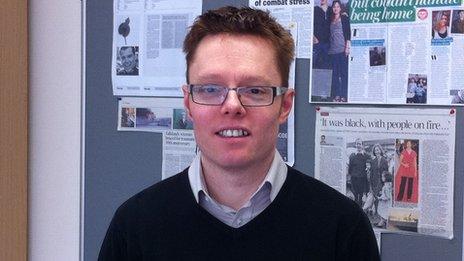
Neil Cox is from Combat Stress who offer support to those affected by PTSD
Neil Cox, from the charity Combat Stress, said: "In 2000 we had 160 referrals from veterans aged between 21 and 30 but in the last year we've had 370 and that's more than we've ever seen before.
"Our research suggests that we will continue to see a steady rise in the number of under-30s coming to us because of greater awareness around mental health."
Another charity, Talking2Minds, has told Newsbeat that 10% of the veterans they now treat for PTSD are also under 30.
They say a greater number of young soldiers have been deployed to war zones over the past ten years which has resulted in an increased exposure to traumatic events.
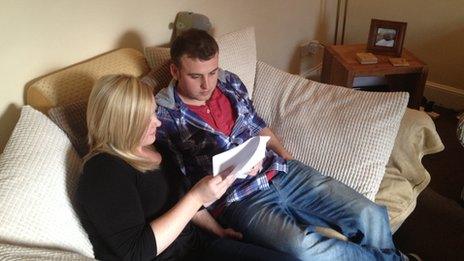
Mark and Georgina read through an account of his experience
US researchers estimate between 10 and 15% of those who serve in a conflict are affected by PTSD.
The MoD says the mental health of its service personnel is a top priority and help is available at home and on operations.
Mark was medically discharged from the RAF in 2011.
"When I was told I had PTSD it all made sense and I think if it had been a superficial injury and not a mental injury it would have been better."
Visit the BBC's advice pages if you're affected by any of the issues in this story.
- Published4 May 2011
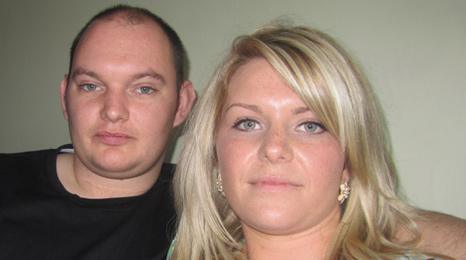
- Published12 March 2010
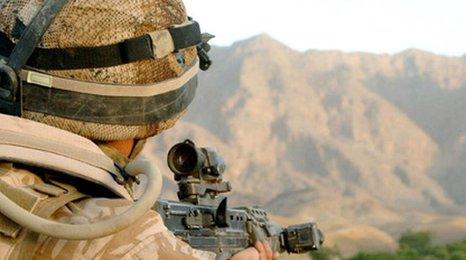
- Published9 February 2011
